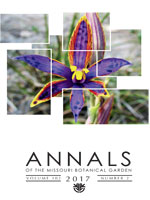The practice of ecological restoration is challenged by accelerating rates and expanding scales of anthropogenic ecosystem change. The concept of “novel ecosystems” has become a focal point of intramural debate, leading restoration practitioners and researchers to reject, defend, revise, and reframe prior premises and goals. In a world of rapid environmental change, restoration can be seen, depending on one's perspective, as more necessary than ever, or as essentially futile. By revisiting restoration's history and defining a more nuanced approach to the realities of ecosystem change, we may be able to find space for reconciliation, or at least accommodation, of these divergent views. Aldo Leopold recognized as early as the 1930s that human impacts on the “biotic community” are pervasive; that “wilderness is a relative condition”; that conservationists must recognize “the dynamics of [the land's] past history and probable future.” At the same time, he pursued restoration as a necessary new dimension of conservation and proposed his “land ethic” as “a mode of guidance for meeting ecological situations so new or intricate” that society had not yet evolved an effective ethical response. Since Leopold's generation, the “great acceleration” in global environmental change has altered the context in which we assess the promise and potential of restoration. It has only deepened, however, the need for conservation science, policy, ethics, and practice to engender resilient landscapes. Ecological restoration remains an essential means of doing so, albeit with redefined aims and methods.
How to translate text using browser tools
1 August 2017
Restoration and "Novel Ecosystems": Priority or Paradox?
Curt Meine
ACCESS THE FULL ARTICLE
Aldo Leopold
ecological restoration
land ethic
novel ecosystems
resilience
wilderness





